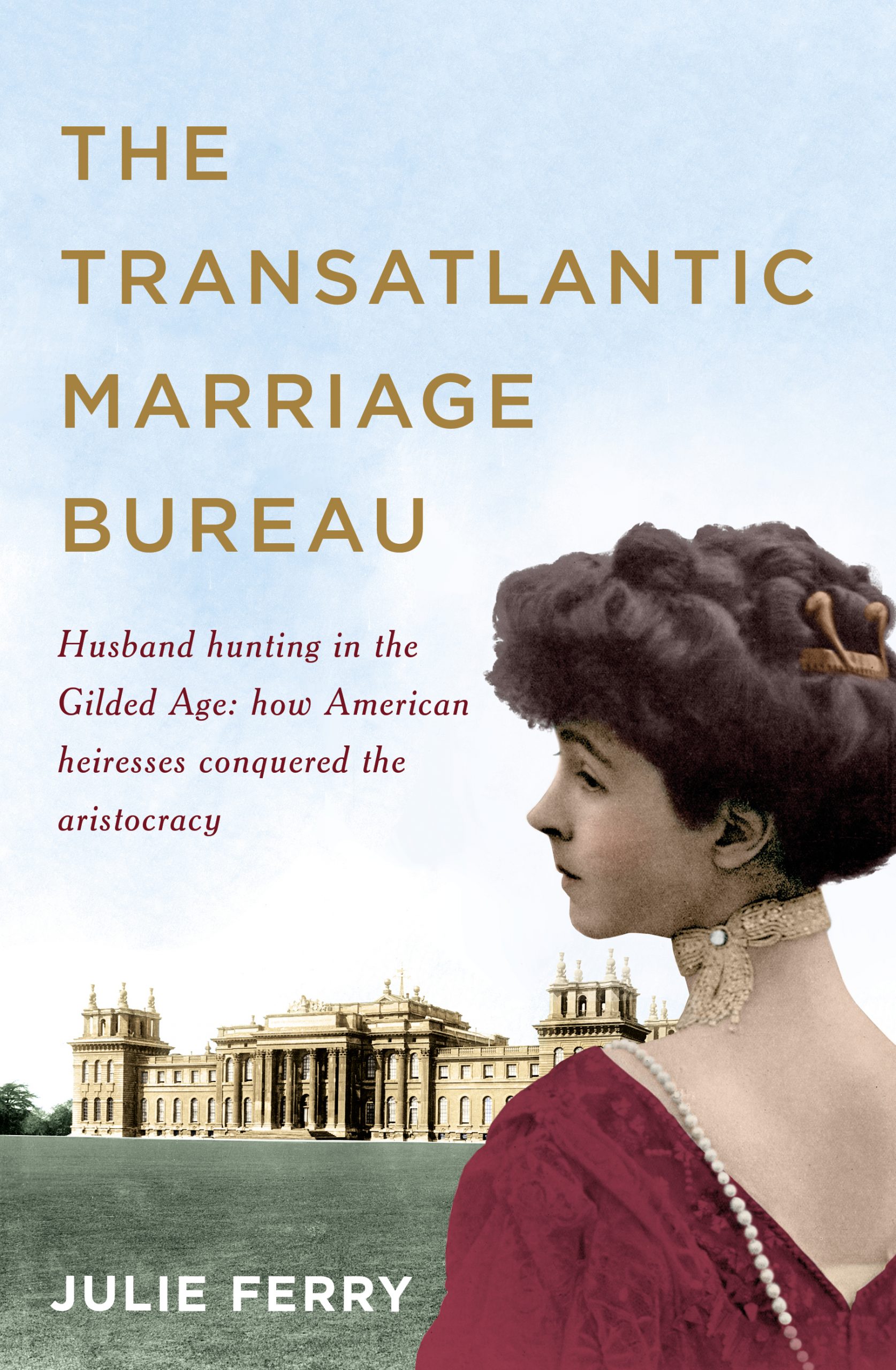How to become a published author
Journalist Julie Ferry's first book, The Transatlantic Marriage Bureau, is published this month. Here, she shares the secrets of her success, from dreaming of being a published author to making that dream come true…

Like many people, I’d wanted to write a book for many years. I was one of those people who saw my lunch hour as the perfect opportunity to scour the shelves of the nearest bookshop for new releases. I loved looking at book covers. Simple covers. Illustrative covers. Busy covers. Picture covers. They all had one thing in common – the author’s name. Occasionally, I would indulge myself with the thought that one day I might wander into the same shop and see my name on the cover of a book.
So, for the next decade, I decided to change that dream of being published maybe one day at some point in the future, into actively trying to write a book. Now, this is where non-fiction differs from fiction in the publishing world. Whereas would-be novelists have to produce a full length manuscript, or at least a hefty part of it, to an agent before the business of finding a publisher can commence, the process for non-fiction is somewhat different.
In most cases, an author will present a lengthy proposal on their book, detailing their subject, chapter structure, some background information, any research sources they intend to consult and cross their fingers that a publisher feels as wildly enthusiastic about it as they do. For a first-time author, the finger-crossing extends to toes, legs and anything else it is possible to cross, in the hope that somebody might take a chance on an untested writer and their fledgling book.
I already knew I wanted to write about strong women; they were the women who lurked in the footnotes of history, the ones I always wanted to know more about. They were the mothers, wives, sisters and daughters of powerful men, the ones that didn’t seem to get equal shelf time with their male counterparts. These were the women who interested me.
Of course there have always been biographies devoted to famous women – Queen Victoria and the Mitford sisters, for example, have all had a permanent place at the historian’s table. However, I was always seduced by the many remarkable women who had wielded so much influence during their lifetime, yet had now been almost totally forgotten save the odd cursory mention here and there.
So, I began to write proposals. Proposals for books on women who, though they were very important in their time, in the intervening years had slipped into obscurity. However, as I found out, the trouble with resurrecting little known historical figures, particularly women, is that it adds one more hurdle to getting published. Not only do you have to convince a publisher to take a chance on a first-time author, you also have to convince them to take a chance on a historical figure unfamiliar to the majority of the book-buying public.
I wasn’t immediately successful. I wrote lots of proposals, diligently researching my subjects until I felt fairly confident that I knew where their story would lead me, presented it for consideration, and was mostly greeted with polite but firm rejections.
It wasn’t all bad though! I was encouraged by some positive feedback along the lines of that I was onto something, but the idea wasn’t quite there yet. So I wrote more proposals. And then finally, while researching yet another fascinating and flamboyant character from the 19th century, I came across Minnie Paget. The moment I read about this American heiress who had been one of the first buccaneers to marry into the aristocracy and then used her experiences to set up an unofficial transatlantic marriage bureau, I was hooked.
Paget had been central to London society, wielded influence and power among the British aristocracy, was a close friend of Bertie, the Prince of Wales and yet very little was known about her. As the Victorian era was drawing to a close, she provided a covert service, acting as a conduit into the upper classes for ‘American Swells’ desperate to marry off their daughters who were accompanied by a handsome dowry in exchange for a title that instantly gave them the one thing money couldn’t – social acceptance. Paget’s contacts in America and her evident popularity and social skills in Britain meant that she was perfectly placed to make timely introductions and coach her protegés into making fortuitous marriages.
I set aside my previous proposal immediately and began to research Minnie Paget, the heiresses that she helped to make the journey to England, and the upper classes in America who, through their exclusion of new money, drove heiresses and their millions of dollars away from the drawing rooms of New York to the crumbling stately homes that littered the British countryside.
It would be almost another two years before a publisher decided to let me tell the story of the American heiresses and their fairy-godmother and after all that waiting, the idea of suddenly having a deadline to meet was massively daunting. I had to research and write a book with multiple characters in a year while looking after my young children.
But the one thing I learned from those years of work and rejection, was that I had to grab the opportunity while it was there. I got to work. I wrote whenever I had a free moment and I was amazingly productive. I wrote when I didn’t feel like it, I wrote when I knew what I was writing was utter rubbish, then I wrote some more. The key was that I kept getting words down. Even if I had to go back and delete them the next day, knowing that I could write on that scale, gave me the confidence to keep going.
And here I am, six months after finishing, hardly believing that I managed to fulfil my dream. I know if at any time I doubt that I brought these women to life, I just need to step inside a bookshop and hopefully when I scour the shelves I’ll find my name on a cover staring back at me.

The Transatlantic Marriage Bureau: Husband hunting in the Gilded Age: how American heiresses conquered the aristocracy by Julie Ferry is out on 9 February, published by Aurum Press.
Follow Julie on Twitter @womentoinspire
Photograph: iStock








